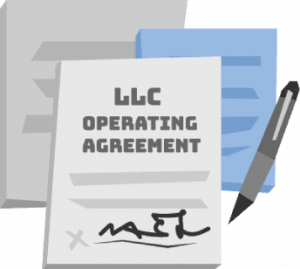How to Start an LLC in Vermont
To start an LLC in Vermont and protect your assets with an LLC, there are three basic steps: name your business, select a Vermont registered agent, and file formation paperwork plus a $155 filing fee. But to keep your business in good standing, you’ll need to take additional steps.
Below, we’ll get into detail about the requirements for starting a limited liability company in Vermont, as well as what to do once that LLC has officially been formed.

1. Name Your LLC
Before anything else can happen, your LLC needs a name. Vermont’s full set of rules for naming an LLC can be found in 11 V.S.A. § 4005. In general, your LLC’s name must:
- Include an acceptable indicator like limited liability company, L.L.C., or LLC
- Not include words or abbreviations like incorporated or limited partnership, or anything else implying your LLC is a different type of entity.
- Be unique among businesses in Vermont
If you’ve already got a name in mind, you should check to see if it’s available. If you have a name but aren’t ready to form an LLC just yet, you can pay $35 and reserve an LLC name in Vermont for up to 120 days.
In Vermont, there’s no requirement for you to register your assumed business name, aka your Doing Business As (DBA) name. But if you want to register it anyway, submit an Assumed Business Name Registration form and pay a $70 filing fee.
Learn how to get a DBA in Vermont.
Yes. A domain name is your a web address online that connects to a website. While it is not required that you register your domain name or have a domain name for your business, securing one early is a smart move. When you register a domain for your company, you get a professional email that matches your business name and access to building a business website.
When Northwest forms your LLC, we help you register your domain name in less than 10 minutes and provide you with a pre-built website based on your specifications and brand design. Don’t need a website yet? No worries! You can still use your domain name to set up your business’s email accounts.

2. Designate a Registered Agent
Vermont state law requires all LLCs to appoint a registered agent. The registered agent can be yourself, someone else, or a company like Northwest. Whoever they are, they must be able to accept legal mail (like notice of a lawsuit filed against you) and state documents on your behalf, then forward that mail to you as quickly as possible.
In addition to the legal mail requirement, your Vermont registered agent must also:
- Have a physical address in Vermont. A P.O. Box isn’t acceptable
- Keep regular business hours
Learn why the pros use a registered agent service.
Yes, but make sure you’re fine with having your name and address listed on the public record. You must also be willing to keep regular business hours as the listed address, so acting as your own registered agent might not be a good option if you’re out and about all day.
If you want to change registered agents after forming your LLC, file a Change of Registered Agent form with the Secretary of State, Corporations Division and pay a $25 filing fee.

3. Submit LLC Articles of Organization
Vermont’s LLC statute says that to legally form your LLC, you must submit Articles of Organization to the Secretary of State, Corporations Division. You must also pay a $155 filing fee. Without both the Articles and filing fee, Vermont won’t approve your LLC.
To complete your Articles of Organization, include the following information:
-
Company name. Include an indicator like LLC
-
LLC type. Check the box to choose your LLC type—professional LLC, L3C, blockchain-based LLC, or just a traditional LLC. Most people select the last one.
-
Fiscal year end. The month your fiscal year ends. If you’re operating on a normal calendar year, this is December.
-
Business description. Briefly describe your business activity or provide a NAICS (North American Industry Classification System) code.
-
Principal address. You must list a physical Vermont address, not a P.O. Box.
-
Mailing address. You can use a P.O. Box.
-
Business email. Include an email address for your LLC
-
Registered agent name. This is the person or business that accepts legal and state mail on behalf of your LLC.
-
Registered agent business address. This must be a physical Vermont address.
-
Registered agent mailing address. This can be a P.O. Box.
-
Registered agent email. Enter your registered agent’s email address.
-
LLC management (optional). Select whether your LLC will be manager-managed or member-managed.
-
Number of members. The number of members (owners) your LLC has at the time of filing.
-
Member/manager information (optional). If you want, include each member’s name and address.
-
Effective date (optional). You can delay the start of your LLC by up to 90 days or choose Date of Receipt for the earliest possible formation date.
-
Organizer signature and address. This is the person who prepares and files your Articles of Organization.
Keep in mind that all the information on this form becomes part of the public record.
Vermont processes online filings within one day of receipt. If you do opt to file by mail or in-person, the state will take 7-10 days to process your paperwork.
The filing fee is $155. There are other costs to form a Vermont LLC.
You’ve got three options for filing your Articles: online, by mail, or in person.
Mail and in person:
Vermont Secretary of State
Business Services Division
128 State Street
Montpelier, VT 05633-1104
Online:
Your Articles of Organization are public record, so the best way to guard your privacy is to hire a registered agent company that can list their name and business address on your LLC’s Articles of Organization. That way, you don’t have to list your home address and risk getting more junk mail from marketers.
To register a foreign LLC in Vermont, you’ll need to do something called foreign qualifying your LLC. That means registering a business to do business in Rhode Island that was originally formed in another state. You’ll need to submit a form called an Application for Certificate of Authority and pay a $155 filing fee.
In-State Local
LLC Registration Help

Your VT LLC Is Formed. What's Next?

Write an LLC Operating Agreement
An operating agreement is an important internal document that goes into great detail about how your business should run. It covers everything from how much each member invested to how the business distributes profits and losses. It should even cover how the business would dissolve itself should that become necessary.
Contact a lawyer or use our free VT LLC operating agreement template.
Vermont state law does not require an operating agreement for your LLC, but you should still create one. An operating agreement is an internal document that ensures your LLC runs smoothly. Without an operating agreement, your LLC will be subject to Vermont’s default LLC laws, which means you have less control over your company.
Your operating agreement should cover how your LLC handles major events, including:
- Initial investments
- Profits, losses, and distributions
- Voting rights and decision-making powers
- Transfer of membership interest
- Dissolve the business
You’ll also want to outline how your LLC will be structured and managed. There are different types of LLC structures and formations from single member (owner) to multi-member to so many more.
Yes. Sure, you won’t need an operating agreement to resolve a dispute with yourself, but you will need it to open a bank account. Having a written operating agreement also bolsters your LLC’s liability protections.

Get an EIN, Bank Account, & Funding
You won’t be surprised to know your LLC needs money to function. To maintain your liability protection, that money should not be mingled with any member’s personal funds, which means you need to open a business bank account. In most cases, you need to get an EIN (or Employer Identification Number) to open a bank account. The only exception is if you’re a single-member LLC and fine with using your Social Security number.
After the bank account is open, the LLC must fund it. To do this, every member should make an initial deposit equal to their membership interest.
You can get an EIN by applying through the IRS website. Want another option? When you hire us to form your LLC in Vermont, we can apply for an EIN on your behalf.

File Taxes & Reports
LLCs must meet specific tax and reporting obligations in Vermont. Here’s a rundown:
-
Vermont LLC taxes: Like every other state, Vermont treats LLCs as pass-through entities by default. This means business profits are distributed to members (aka owners), who must then report any LLC income on their personal taxes. LLCs must also pay the federal self-employment tax in Vermont of 15.3%.
-
Vermont Annual Reports: You must file an annual report with the Vermont Secretary of State, Corporations Division, to ensure the state has up-to-date information about your LLC. It costs $45 to file, and reports are due three months after your fiscal year ends. This means most companies will have their reports due by March 1. If you’re fed up with paperwork, let us file your annual report for you.
You’ll also want to check to see if your LLC will need a Vermont local business license.
Yes, annual reports are due three months after your fiscal year ends.
LLCs are taxed as pass-through entities, though you can also elect to be taxed as an S-corp or C-corp.
Learn more about S-corp vs LLC tax designation.
*This is informational commentary, not advice. This information is intended strictly for informational purposes and does not constitute legal advice or a substitute for legal counsel. This information is not intended to create, nor does your receipt, viewing, or use of it constitute, an attorney-client relationship. More information is available in our Terms of Service.
Ready to Start an LLC in Vermont?
